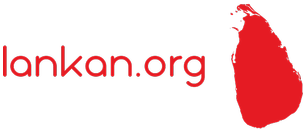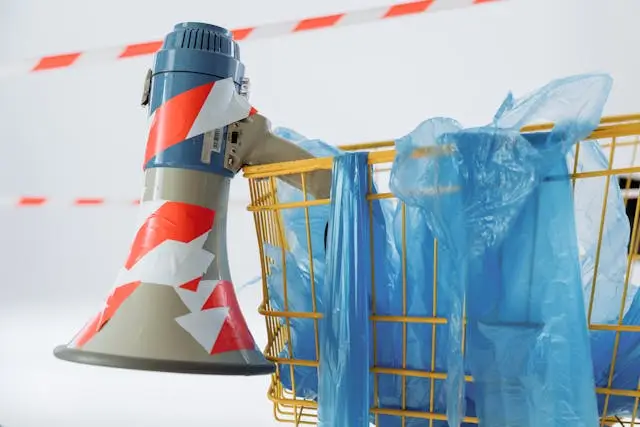Sri Lanka ends free plastic bags?
In a significant stride towards environmental conservation, Sri Lanka has officially ceased the free distribution of plastic shopping bags across the nation. This landmark regulation, effective November 1, 2025, marks a pivotal moment in the country’s ongoing battle against plastic pollution. The move underscores Sri Lanka’s commitment to fostering a greener future and encouraging more responsible consumption habits among its citizens.
The Central Environmental Authority (CEA) announced this new directive, emphasizing its aim to curb the excessive use of single-use plastics and mitigate the pervasive environmental damage caused by disposable polythene waste. Consumers are now urged to embrace reusable shopping bags, actively participating in a national effort towards sustainable consumption.
The Policy Shift: What It Means for Consumers and Businesses
New Regulations in Detail
The regulation, formally published in the Government Gazette on October 1, 2025, specifically targets plastic shopping bags made of low-density polyethylene (LDPE) and linear low-density polyethylene (LLDPE), particularly those with handles, often referred to as “sili-sili bags.” Under the new directive, traders are no longer permitted to provide these bags free of charge to customers. Instead, they are mandated to clearly display the price of such bags at their business premises and ensure the cost is itemized on customer bills.
This initiative, driven by the Central Environmental Authority and the Consumer Affairs Authority (CAA), aims to introduce a tangible cost to plastic bag usage, thereby discouraging impulse consumption and promoting a shift towards more sustainable alternatives.
Driving Sustainable Consumer Behavior
The primary objective of ending the free distribution of plastic bags is to instill environmentally responsible behavior among the public. By requiring consumers to pay for plastic bags, the government hopes to foster a conscious decision-making process at the point of purchase, encouraging individuals to bring their own reusable bags. This measure is a direct appeal to citizens to contribute actively to protecting Sri Lanka’s delicate ecosystems from the persistent threat of plastic waste.
A Nation’s Journey Against Plastic Pollution
Historical Context of Plastic Bans
This latest regulation is not an isolated effort but rather a continuation of Sri Lanka’s longstanding commitment to combating plastic pollution. The nation has progressively implemented various bans on single-use plastics over the past two decades. Key regulatory milestones include bans on polythene less than 20 microns in 2007, thin polythene bags in 2017, and a broader restriction in 2021 covering items such as sachets, inflatable toys, and cotton buds with plastic stems. More recently, in October 2023, nine additional single-use plastic items, including straws, stirrers, cups, and plates, were prohibited from manufacturing, import, sale, and use.
While these previous bans demonstrated a clear policy direction, challenges related to implementation, enforcement, and consumer awareness have been noted. The current measure focuses on a direct behavioral change by removing the ‘free’ aspect, hoping to overcome some of these past hurdles.
The Environmental Imperative
Sri Lanka faces a significant challenge with plastic waste, generating over 1.6 million metric tonnes annually, with single-use plastics accounting for an estimated 70% of this figure. The accumulation of plastic debris not only degrades the natural beauty of the island, impacting vital tourism and fisheries industries, but also poses severe threats to terrestrial and marine ecosystems. Beaches popular with tourists, like Unawatuna and Mirissa, frequently suffer from plastic litter. The new regulation is therefore a critical step in reducing the environmental burden and safeguarding the island’s natural heritage.
Broader Vision: Beyond Just Bans
Holistic Waste Management Strategies
Recognizing that bans alone are insufficient, Sri Lanka is also exploring comprehensive strategies, including Extended Producer Responsibility (EPR) initiatives. These programs aim to hold manufacturers and importers accountable for the entire lifecycle of their plastic products, promoting better packaging designs and take-back systems. The CEA plans to introduce laws requiring companies to collect plastic packaging after use, fostering a closed-loop system for plastic waste management.
Complementary efforts include nationwide awareness campaigns, such as those by the Sri Lanka Institute of Packaging (SLIP) in collaboration with Clean Sri Lanka, to educate the public on sustainable packaging and waste management. Furthermore, the government is considering tax incentives and subsidies to encourage eco-friendly practices across various sectors.
Looking Ahead: The Path to a Circular Economy
The decision to end the free distribution of plastic shopping bags is a testament to Sri Lanka’s unwavering dedication to environmental protection. While this policy represents a crucial advancement, its long-term success will hinge on robust enforcement, consistent public engagement, and the continued development of sustainable alternatives. By fostering a collective responsibility among government, businesses, and citizens, Sri Lanka can accelerate its transition towards a circular economy, ensuring a cleaner, healthier environment for generations to come. This latest move is a powerful reminder that every small step contributes to a monumental change in the fight against global plastic pollution.

















